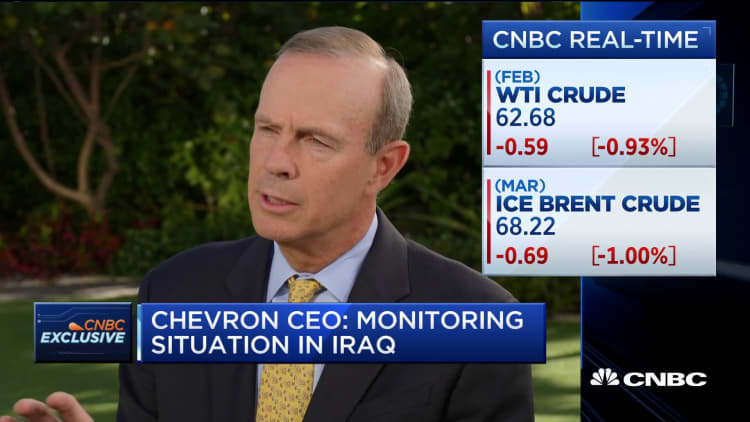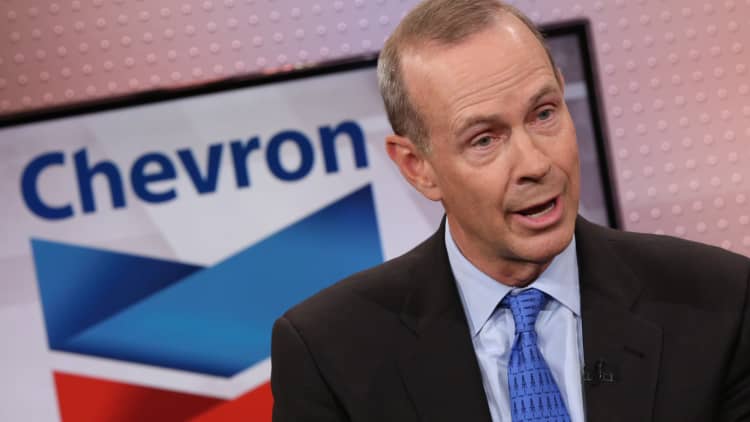
Chevron Chairman and CEO Michael Wirth does not anticipate significantly higher oil prices from increased Iran-U.S. tensions.
"Fundamentally supply and demand remain where they were before these incidents," he said Tuesday on CNBC's "Squawk on the Street" from the Goldman Sachs energy conference in Miami Beach, Florida. "We haven't seen anything that's actually changed that ... Fundamentally markets, while they see the geopolitical risk, I think we've been in a well supplied market for some period of time here, and that's generally what the view continues to be at this point."
He noted that following September's drone attacks on Saudi Arabia's oil facilities in Abqaiq and Khurais, which took an estimated 5.7 million barrels of oil offline, oil prices initially spiked before returning to their pre-attack levels within weeks. This time around, no production was impacted.
"This event while certainly newsworthy, didn't fundamentally strike energy infrastructure or change the supply and demand dynamics in the market," he said, before adding that it's a "reminder of the risk that exists in our business."
Wirth's comments come as tensions in the Middle East build following Thursday's killing of Iran's top commander Qasem Soleimani.
On Monday a Chevron spokesperson said that the company pulled some employees from Northern Iraq as a precautionary measure.
"We don't have a big operation in Iraq," he said, adding that as the "situation clarifies itself" people will return. The company's facilities in the country are in the early phases of development, and not yet producing.
On Friday oil prices surged more than 3% as analysts considered possible forms of retaliation from Iran, which some say could include targeting oil production facilities in Iraq or Saudi Arabia. But by Monday fears appeared to have subsided, and oil settled little changed after giving up an early gain of more than 2%.
Wirth said that "shorter-term phenomena," such as Thursday's airstrike, December's larger-than-expected OPEC cut and September's drone attacks on Saudi facilities are not factored into the company's long-term outlook on Brent and WTI prices.
On Tuesday international benchmark Brent crude shed 59 cents, or 0.8%, to trade at $68.31 per barrel, while U.S. West Texas Intermediate crude lost 58 cents, or 0.9%, to trade at $62.70 per barrel.
For every $1 increase in oil prices, Chevron gets around $450 million a year in additional cash flow, but Wirth said that the company would "probably not" increase its capital spending plan even if prices stay higher for longer.

ESG investing — a strategy that takes into consideration a company's environmental, social and governance factors — is gaining traction, which can pose a threat to traditional oil and gas companies.
Wirth said that Chevron has a three-pronged approach when it comes to the "energy" component of ESG. The company has worked to reduce the carbon intensity of its operations, has integrated renewable energy into its business, and has also invested in breakthrough technologies that are tackling the climate crisis.
Shares of Chevron have gained 7% over the last year, outperforming the S&P energy sector, which is flat. The S&P 500 has gained 27%.


